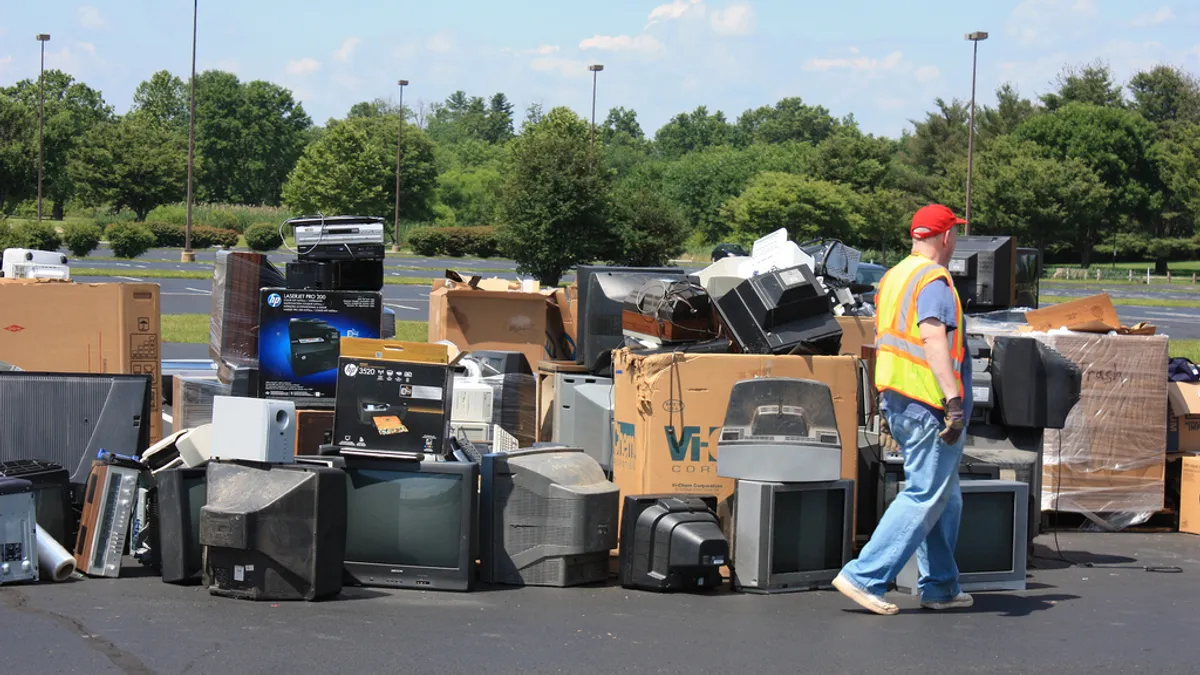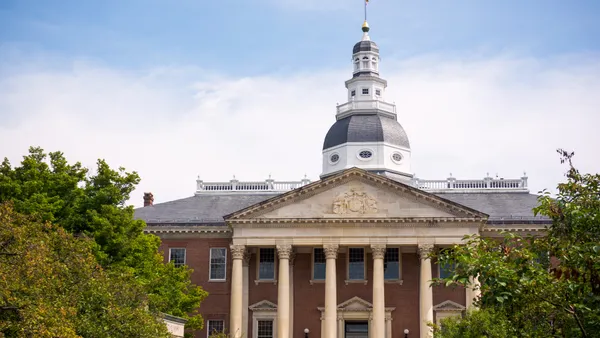Dive Brief:
- This month West Virginia passed HB 4540, reversing a ban on landfilling televisions, computers, and display devices, effective July 1, 2016. The law does however allow communities to ban landfilling if the area has "cost-effective" e-waste recycling options, as reported in Resource Recycling.
- The ban was burdening agencies, including Kanawha County Solid Waste Authority, who had to stop accepting these wasted products due to a lack of funding to recycle them. Other agencies incurred expenses too; Greenbrier County Solid Waste Authority was paying 16 cents a pound to ship TVs out-of-state for recycling.
- The ban did not increase recycling rates as it was intended to, but rather created an illegal dumping problem, acknowledged the West Virginia Department of Environmental Protection who proposed the repeal, as reported in Resource Recycling.
Dive Insight:
The ban was an experiment to try and ease landfill burden and empower residents to recycle. But the plan had unintended consequences, namely taxing authorities who kept reaching into their pockets to compensate for the accumulating loads of e-waste and ultimately find another place for them.
"It put a lot of municipalities and solid waste authorities in a very difficult situation where you had to do it but you knew you couldn't make money or even break even," said James Young, executive director of the Kanawha County Solid Waste Authority, as reported in Resource Recycling.
Bob Bennett of the Greenbrier County Solid Waste Authority has managed to keep up at a cost, but questions whether it was worth the effort. "It's been a real nightmare, and then I wonder if all the TVs we have shipped out of here have actually been properly taken care of or if they've just ended up in a landfill in another state," he said to Resource Recycling.
Jeff Slack, the director of Region 8 Solid Waste Authority shared a different scenario from the other agencies.
"I've been fortunate enough to be able to find a way to capture and recycle CRTs in a way that doesn't cost me a tremendous amount of money," he said to Resource Recycling. His workers bundle the e-waste and ship them at no cost unless they exceed a certain weight. Though he fully acknowledged some communities have been hit hard. Those communities feel the ban just won’t work with their existing resources.
With 40 billion tons of e-waste piling up a year, the problem is bigger than West Virginia's. And only so many people think about long-term consequences or are even aware of the issue where less than a sixth of it is recycled or up-cycled. There are e-waste diversion initiatives, including a national one, for residents and municipalities that happen to be in reaching distance.













